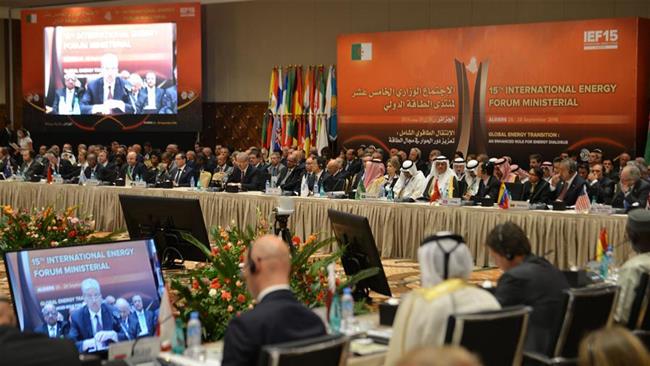OPEC agrees to reduce oil production
The Organization of Petroleum Exporting Countries (OPEC) has reportedly agreed to reduce its oil production to 32.5 million barrels per day (mb/d) from November. The agreement to slash OPEC’s production by 0.75 mb/d from the current volume of 33.24 mb/d was reached in an informal meeting of the Organization in Algeria.
The OPEC is yet to decide how much each country will produce in its next meeting in November, Reuters reported. Other non-OPEC producers including Russia will also be invited to join the deal, it added. The announcement pushed up oil prices more than 5 percent to trade above $48 per barrel. The meeting in Algiers had on its agenda a proposal by Saudi Arabia for OPEC and non-OPEC producers to freeze their output at January levels.
Nevertheless, Iran – which is the Organization’s third largest producer after Saudi Arabia and Iraq – had made it clear that it was not interested in the Saudi proposal. Iran’s Petroleum Minister Bijan Zangeneh had announced that the Islamic Republic would go ahead with plans to increase its production to pre-sanctions levels of above 4 million barrels per day.
Reports had earlier emerged that Riyadh had offered a proposal to Tehran in which it said it was ready to halt its production provided that Tehran failed to increase its output over the remaining months to the end of 2016. The proposal, however, had been reportedly rejected by the Islamic Republic. On the eve of the OPEC meeting in Algeria, Iran’s Petroleum Minister Bijan Zangeneh emphasized that it expected any potential deal over supply levels to be reached in the Organization’s next meeting in Vienna in November.
Speculations are now high that a compromise has been reached over the production cut agreement inside the Organization. On the same front, Saudi Energy Minister Khalid al-Falih said on Tuesday that Iran, Nigeria and Libya would be allowed to produce “at maximum levels that make sense,” Reuters added.
Presstv





